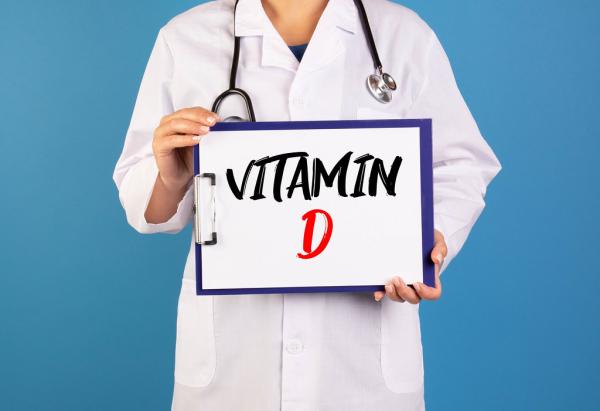
Turns out there’s nothing quite like a pandemic to bring out the nutrition crazies. Eating lots of garlic and adding hot peppers to your soup are two “cures” for COVID-19 that the World Health Organization has chosen to debunk, but there are any number of equally-bonkers, immune-boosting food scams that have gone “viral” during the coronavirus crisis.
Simply put, you can’t “boost” your immune system through diet, and no specific food or supplement will prevent you from becoming infected with the coronavirus.
However, that’s not to say that eating a balanced diet won’t help your general health, nor indeed that some nutrients do have specifically recognized roles in helping the immune system to function.
Boring But True – A Balanced Diet is Best
The EU Register on Nutrition and Health Claims – which for all its potential flaws is arguably the world’s most useful database of scientifically assessed health claims for food – lists 10 vitamins and minerals as having credible links to immune function. These are copper, folate, iron, selenium, vitamin A, vitamin B12, vitamin B6, vitamin C, vitamin D and zinc.
All these nutrients are available from a varied diet and all the evidence suggests this is the best way to obtain them. A good diet for most people will be one that’s heavy in vegetables, fruits, whole grains, pulses and nuts, contains moderate amounts of fish, dairy, poultry and liquid oils, and smaller amounts of red and processed meat, refined carbohydrates and sugar.
Vitamin D Might Be a Special Case
However, vitamin D could be something of an exception as it’s not so easy to get from food and is widely deficient across populations, including in the US. This and the fact that as warmer months arrive we're still largely locked down and unable to take full advantage of vitamin D from the sun makes it worthy of study in relation to COVID-19.
And the vitamin D/COVID-19 research bandwagon is certainly moving apace. These are snippets from three different three papers released in the last month alone.
· In one study it was found that 100% of ICU COVID-19 patients less than 75 years old had vitamin D insufficiency.
· In another, out of 55 patients with higher blood serum levels of vitamin D metabolite (more than 30ng/ml 25-hydroxycholecalciferol), 47 had mild symptoms, 4 had “ordinary” symptoms, 2 had severe symptoms and 2 had critical symptoms. Of the 157 patients with lower vitamin D (less than 30ng/ml 25-hydroxycholecalciferol), 2 had mild symptoms, 55 ordinary symptoms, 54 severe symptoms and 46 critical symptoms.
· The third found that across European countries, there was a strong association between vitamin D levels and per capita COVID-19 cases and mortality.
A huge dollop of caution is needed here, as with like all rapid release coronavirus-related research these are non-peer reviewed preprints. Moreover, there’s the usual limitation of correlation versus causation. Lower vitamin D is associated with increasing age and darker skin, both of which link independently with decreased immune function – directly in the case of old age or via higher diabetes rates (linked to higher COVID-19 risk) in ethnic populations.
Evidence Building
Nevertheless, the current rush of COVID-19 vitamin D studies didn’t just come out of nowhere. Previous studies have noted that vitamin D deficiency may be a biomarker of sepsis risk, while data has been growing around a potential benefit of the vitamin D in prevention of and mortality from infections.
In particular, a systematic review and meta-analysis collating evidence from 25 randomized controlled trials (RCTs) that gave vitamin D supplements to all age groups with acute respiratory infections found protective effects among all participants, but particularly among those with baseline 25-hydroxyvitamin D levels indicative of deficiency.
So far there are no results from studies in which vitamin D supplements have been tested directly in patients with COVID-19, though this will likely come. A French clinical RCT was recently started that will test the effects of a large single vitamin D-dose, administered early in infection, compared to a standard dose, on the mortality of older vitamin D-deficient COVID-19 infected adults.
Supplemental Benefits?
Should you take vitamin D pills during the coronavirus crisis just in case? Vitamin D is clearly not a panacea and is most likely useful only in deficiency.
However, because vitamin D is very affordable and the risk/benefit ratio seems to be favorable, supplements might be reasonable for most people to consider. This is especially so if you are black or brown, are elderly or fully isolating at home.
“Given [vitamin D’s] rare side effects and its relatively wide safety margin, it may be an important, inexpensive, and safe adjuvant therapy for many diseases,” say the authors of a recent narrative review of the nutrient in the European Journal of Clinical Nutrition
Until future large and well-designed studies are completed we just don’t know what the impact of vitamin D might be in COVID-19 specifically. But upping your intake is certainly the least crackpot of all the nutrition ideas out there.



